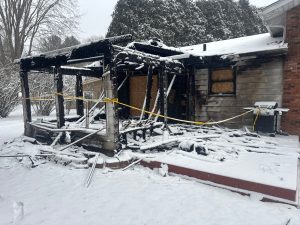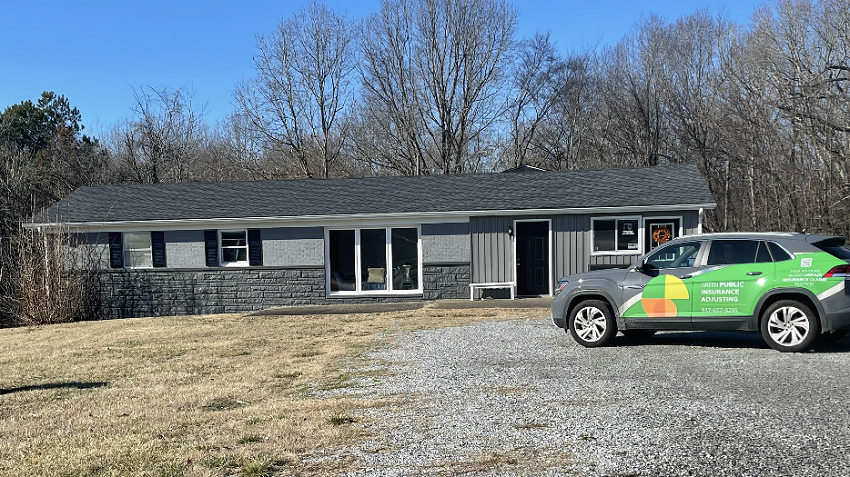The appraisal process is designed to provide an efficient, impartial resolution to disputes over the value of property damage. But what happens when the very person appointed to bring closure — the Umpire — becomes the reason for delay?
In this scenario, the appraisal has been ongoing for more than a year. Both appraisers agreed on an Umpire months ago, and after being invoked to render a decision, that Umpire has gone completely non-responsive. No communication. No Award. No resolution. Meanwhile, the policyholder’s appraiser faces legal threats over delays in settlement.
The situation raises an uncomfortable but important question:
When is it appropriate to request a change in Umpire, and who has the authority to make that request?
The Role of the Umpire
The Umpire’s function is straightforward — to evaluate the positions of both appraisers and make a final, binding decision on disputed amounts. The Umpire’s involvement should move the process forward, not bring it to a standstill.
But when the Umpire fails to act within a reasonable period, the process loses its intended purpose. While no statutory deadline exists for how long an Umpire can take to render a decision, months of silence after invocation can be considered unreasonable — especially when policyholders face financial harm from continued delay.
When Is It Appropriate to Request a Replacement?
It becomes appropriate to seek replacement when:
1. The Umpire is unresponsive despite repeated contact attempts.
Documentation of unanswered emails, calls, and letters is key to demonstrating due diligence.
2. The delay prejudices either party.
When a policyholder risks loss of coverage, legal action, or financial hardship due to an unresolved claim, continued inaction may warrant substitution.
3. The Umpire’s conduct breaches ethical or procedural expectations.
Most appraisal guidelines emphasize timely communication, impartiality, and professionalism. Prolonged non-communication can violate these standards.
4. The appraisers can no longer rely on the Umpire’s participation.
If an Umpire cannot complete the assignment within a reasonable time, the process should not remain indefinitely suspended.
Who Has the Authority to Request the Change?
In most appraisal agreements, either appraiser may initiate the discussion, but mutual consent of both appraisers is typically required to discharge one Umpire and appoint another.
If the parties cannot agree, the policy terms or state law may allow a court to intervene. Under many property policies, the appraisal clause is treated as an alternative dispute resolution mechanism — meaning the courts have limited but defined authority to enforce or clarify procedural breakdowns, including substitution of an Umpire for “good cause.”
In Ohio and many other states, an appraiser can petition the Court of Common Pleas to remove and replace a non-performing Umpire. Courts generally require proof of unreasonable delay, lack of communication, or breach of duty to act impartially.
What About Fees Already Paid?
This issue often sparks contention. Most Umpires are paid retainers up front, which may or may not be refundable depending on the terms of engagement.
If the Umpire has failed to perform any meaningful work, the appraisers may jointly request a partial refund or credit. However, unless the Umpire’s contract includes specific refund provisions, recovery of funds may depend on negotiation or, in extreme cases, small claims or civil court action.
When substituting an Umpire, parties should clearly document:
- The reason for removal,
- Attempts to obtain cooperation, and
- The financial arrangement (refunds or credits) related to the original Umpire’s fee.
Transparency here is essential to avoid later disputes.
Should You Continue or Replace?
Continuing with a non-responsive Umpire only extends uncertainty. If communication gaps exceed 90 days without legitimate cause, and attempts at contact are ignored, replacement is often the only viable path.
However, before proceeding, appraisers should:
- Confirm all outreach efforts in writing,
- Notify the opposing appraiser of intent to seek substitution, and
- Offer the original Umpire one final, documented opportunity to respond.
Once those steps are taken, both appraisers can agree to appoint a new Umpire — or seek judicial assistance if consensus cannot be reached.
Best Practices Going Forward
To avoid similar problems in future appraisals:
1. Vet Umpires thoroughly — request references and confirm current caseload before engagement.
2. Use written engagement agreements with timeframes and performance expectations.
3. Schedule regular progress checks (e.g., every 30–45 days) to ensure activity is ongoing.
4. Hold retainers in escrow or link final payment to completion of the Award.
5. Document all communications between appraisers and the Umpire for accountability.
Final Thoughts
The appraisal process exists to resolve disputes efficiently — not to stall them indefinitely. When an Umpire becomes unresponsive for months, it undermines the very purpose of the mechanism and erodes confidence in the process itself.
Replacing an Umpire should not be taken lightly, but when the delay is excessive and communication has ceased, substitution may be both appropriate and necessary.
Policyholders deserve timely resolution. Appraisers deserve professional collaboration. And the appraisal system deserves accountability from those entrusted to uphold its integrity.
Disclaimer
This article is for informational purposes only and reflects the professional perspective of licensed public adjusters. Green Public Insurance Adjusting and its employees are not attorneys and do not represent any law firm. Policyholders should consult qualified legal counsel before pursuing court intervention or contractual remedies.





